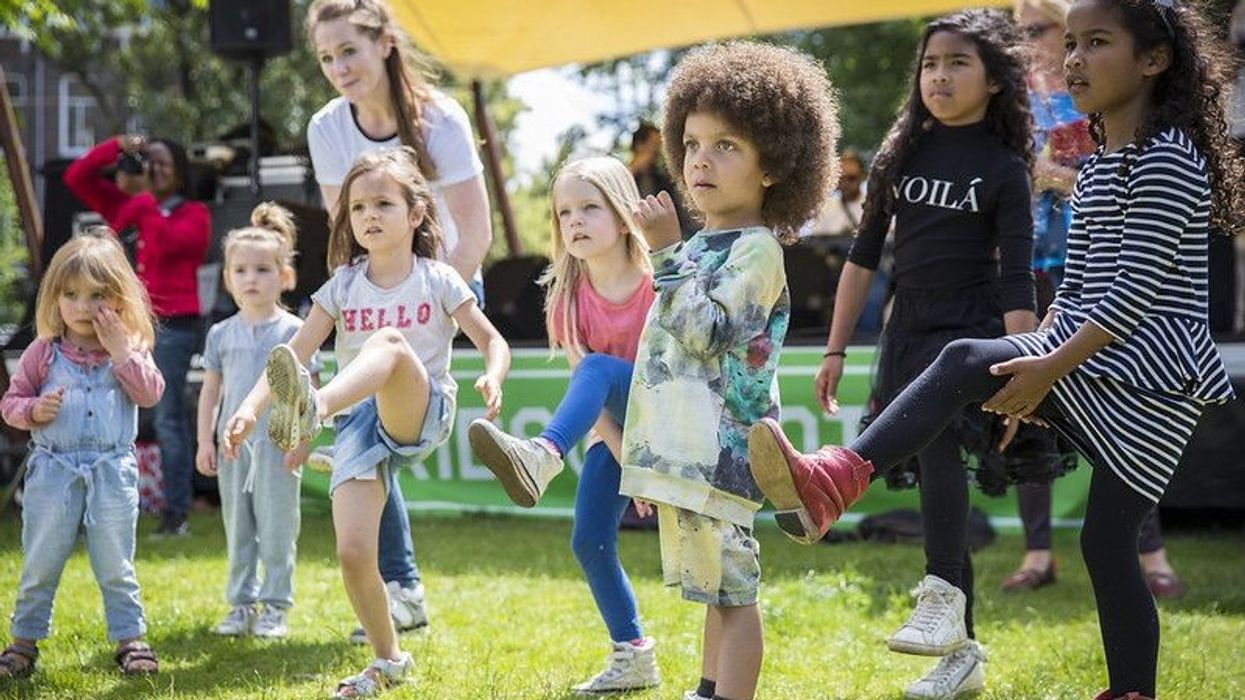If you've got a difficult child then be advised: you are not alone!
Kids come with different types of temperament. Some will be sweet as angels (most of the time), while others can be hell-raisers (some of the time).
This is no reflection on your qualities as a parent. It's just the way things are. Even two siblings can be at opposite ends of the scale.
Parents might not get to choose their kids' emotional ranges, but there are ways to help them control their feelings and tempers. And professional help is available if you need it.
This article looks at how to parent difficult children, how to give them the best start in life, and how the family can grow together and understand any underlying problems.
Once you have read these tips on handling difficult children, for more parenting advice, see our article about when a 9-month-old baby is not crawling or how to handle 3-year-old behavior that is out of control.
Are Some Children Just More Difficult?
Asking whether your child is more 'difficult' than other kids can be, well, a difficult question to answer. Is the child really more argumentative and uncontrollable than other kids, or is that just how you perceive it? What do we mean by difficult, anyway? It's easy to get tied in knots.
Anyone who has two or more children, though, knows that kids come with very different temperaments. You can raise siblings in exactly the same way, with exactly the same rules and they'll turn out very differently.
Like any trait, behavior lies on a spectrum. Some kids are naturally easy-going and others offer more challenges to parents. And the difference between the two can be hard to imagine until you've seen it in your own children.
Difficult or challenging behavior can manifest in several different ways. The most common, especially in younger children, is an emotional outburst of anger and shouting, often called a tantrum.
But the child may also scream, swear, bite, break things or lash out at others. Every family will experience some discipline problems of this nature, but if a child is regularly getting anguished, often getting into trouble at school, or is physically injuring themselves or others, then parents need to seek help.
Tips For Helping Difficult Children Stay Calm
We've all been there. Even children who are usually all sweetness-and-light have their occasional moments.
Dealing with difficult children is particularly tricky in public, where we not only have to try to calm with the child, but also feel the burn of reproachful gazes from passers-by. But how do you ease the temper tantrum in the shopping mall; or the complete meltdown on the high street?
Or even the regular bout of fury in private?
The first thing to know is that it will get better. Probably. Temper tantrums are completely normal.
Almost all children have them in their early years, hence phrases like 'the terrible twos' and 'threenagers' (these are often seen as the most difficult ages for many children). They're usually triggered by the child not getting something that they want, and may be exacerbated by hunger or tiredness.
Most children grow out of full-blown tantrums when they reach school age, and learn better ways to handle minor disappointments. But not always. Many kids have underlying conditions such as ADHD that can trigger problems with their temperament, and a bewildering number of other mental health issues can be at play.
Helping children regain emotional control can be hard, but there are many parenting techniques that can help. The most obvious, and perhaps most powerful, is to show regular emotional support, with plenty of hugs and reassurances that you love them to bits.
If a child has a meltdown in the street, shouting back will not help one jot, but kneeling down to their level and giving a warm hug with soothing words might be all that's needed.
Children who are easily anguished tend to like consistency. Make sure you're sticking to the same rules and treating siblings the same wherever possible.
A younger difficult child can sometimes be mollified with a distraction. Change the subject to something completely different, produce a favorite toy, or even make a funny noise if your child is amused by such things. This won't fix the underlying problem, but it can help you make progress if your child's tantrum is holding things up.
Above all, never shout or threaten your child. Parents can easily lose their tempers when feelings are running high, but getting angry or using strong language will only make matters worse.
At the same time, don't feel miserable with yourself if you experience anger or frustration with your kids, this too is very normal. Every parent feels exhausted and "at their wit's end" from time to time, even those who wouldn't normally say they have a difficult child.

How To Deal With A Difficult Child
The old nature versus nurture argument can be difficult to square. How much of a child's behavior comes down to innate tendencies, and how much is shaped by their experiences?
The example of the divergent siblings mentioned above shows that a fair chunk of a child's temperament is inherent, but that's not to say that everything is set in stone. Even the most difficult kid can be helped towards a calmer life with the right interventions and parental choices.
The key thing to remember is that your child isn't being difficult on purpose. They're not on some mission to annoy or frustrate you. You're not a bad parent, and they're not trying to make you feel like one. You can make yourself feel better by making them feel better.
Easier said than done, right? Well, for sure.
Helping a child find ways to control their emotions can be a hard task for parents, but it's not impossible. Start with a conversation; a proper, deep, heart-to-heart to find out what's bothering them.
This works best if you're doing some kind of activity, out for a walk, say, or playing throw-and-catch, where it's harder to close down or slink off. Reassure the child that it's totally OK for them to feel however they feel, that you love them and that you're never angry at them.
Then explore ways they might try to manage strong feelings, without expressing them through shouting or other negative behaviors.
It's OK to be angry; it's not OK to lash out. Above all, listen.
Let them do most of the talking, be attentive to what they say, and don't be judgmental. If you're able to have regular conversations like this, then your child might gradually grow in self-esteem and confidence, reduce their challenging behavior and make everyone's life that bit brighter.
The second thing to remember is that no amount of discipline and telling-off is going to change your child. That's completely the wrong way to look at the situation.
You might shock them into silence, but the underlying problem will remain, and may even be exacerbated.
Rather than 'correcting' difficult behavior, we should be helping the child to understand and master it, or else channel their emotions in better ways.
It sounds almost like a bad TV cliche, but turning the negative into something constructive really is the best strategy. So if, for example, your child is frustratingly stubborn, then find challenges that reward tenacity.
Give her the task of completing an adventure playground, assault course, or climbing ropes, then ask her to try and beat her time. Put him in charge of your household recycling where a stubborn adherence to rules will make sure you all file your garbage in the correct bins.
Remember that people who are 'difficult' are also likely to be strong-willed or energetic, and those are not bad things if channeled in the right direction.
Sudden changes can often trigger behavioral problems, particularly in children with conditions such as ADHD. Change is, of course, inevitable as we go through our lives, but you could try to minimize it as much as possible during day-to-day interactions.
Have set routines for meals, baths, and bedtimes. Draw up timetables if that helps, or perhaps family agreements on things like screen time and chores.
How does your kid behave when you're not around? It's worth talking to the school, kindergarten, or other people they hang out with, to see if the discipline problems are happening in other parts of their life. Schools may have counseling and other services in place that might provide help for difficult children.
Some children might benefit from practicing mindfulness exercises. Techniques to help calm a troubled mind are now widely taught in schools, backed up by YouTube videos, books, and specialized apps.
Try out a few of these with your child, and remind them of the techniques they learned whenever they get frustrated.
You could also try to read books to them about dealing with emotional problems.
This will give them new words to help describe their feelings, and reinforce that they're not alone in feeling angry, anxious, or otherwise distressed. Another tip, obvious really, but easily forgotten, is to give frequent praise and encouragement, particularly when the child has taken time to think about what you've said, and modified their behavior.
What To Do If I Can't Cope

If you've tried all the approaches above and you still feel like you're getting nowhere, then it's time to seek professional advice. It's sometimes hard to take this first step.
We all like to think that we're capable parents. We know our children best, and we should be able to understand what's causing their misbehavior. Seeking (and sometimes paying for) professional help can feel like we're admitting defeat.
But you have to let go of such feelings if you're going to crack the problem. You're not 'giving in', but seeking help from somebody with much greater experience at uncovering your child's difficulties.
Parents might be clued-on that their child is having problems at school, or among their friends. But how many can spot an undiagnosed learning or mental health difficulty that might be affecting their self-confidence?
Conditions like ADHD, depression, anxiety, and autism spectrum disorders are all a possibility. Teachers may be able to read some of the signs, but speaking to a qualified counselor or child psychologist is the best way to understand your child's emotional difficulties.
The services accessible to your family will depend on where you live. Many schools have support schemes or counseling services that are free to use.
Others run mentoring and buddying schemes that can help with all kinds of issues. Your doctor may be able to refer your child to a counselor, therapist, or psychologist.
It's particularly important for a parent to seek a doctor's advice if there's a suspicion that the child might have some underlying mental health condition. You may also want to talk to someone about your own mental wellbeing or join a more informal parenting group to discuss your challenges with parents in a similar position.
If you found this parenting article about raising difficult children helpful, then why not take a look at our ideas for 6-year-old birthday parties or what to do if your baby won't nap?










